In the past few years of the pandemic, many professionals are looking for a stable position with a company— a career that will last a lifetime. “The Great Resignation” is a popular topic, but it doesn’t necessarily reflect the perspectives of career-minded people that want stability, reassurance, and a healthy working environment. Contextually, many people have families to think about when they think about their career choices.
As people become more focused on their futures, many are interested in knowing what characteristics they need in order to find and maintain a long-term professional position that will support their focus on their personal goals. Raising a family, work-life balance, job security, and more are important priorities that people are taking into stronger consideration as they assess what the healthiest professional future will look like for them.
The key to longevity in one’s career boils down to self-awareness and self-esteem. In short, you have to know what you are good at, know where you have challenges, and have the confidence to build consistency in your work and through your passions.
Being able to identify these qualities in yourself is the first step in finding the right career path that can provide long-term success.
Having an understanding of yourself is essential when it comes to thinking of career longevity. Knowing your strengths and weaknesses allows you to take advantage of your skills while also recognizing areas where you need improvement. Additionally, having strong self-esteem and being able to handle honest feedback helps ensure that you stay motivated even when your professional career brings along unexpected stress.
I can’t reiterate it enough: being able to understand who you are will allow you to better identify which types of positions you will thrive in. For instance, generally, there is a significant difference between the responsibilities one may have in a customer service or leadership role vs. a position where one works independently. There are key people skills one must possess in order to be an effective leader or to deal with customers [or in our case, patients and families] on a daily basis. In contrast, working solo requires someone that is able to focus and remain productive in the absence of other team members while still being able to find enjoyment in the workplace.
Albert Einstein one said, “Everybody is a genius. But if you judge a fish by its ability to climb a tree, it will spend its whole living believing that it is stupid.” So, in translation, the question becomes: what career path best fits your personality type, and how will your contributions be viewed by others?
Many companies now administer skills exercises which include personality profiles to keenly identify a new-hire’s strengths and weaknesses, so it is always helpful for career-oriented individuals to do the self-work necessary to feel as if they will thrive in a position they settle into for the long haul. Knowing where you will feel comfortable is key to your potential and targeted success.
The moral? Plan smart. Assess yourself. Be self-constructive. Believe in YOU. Understand that knowing who you are and having a strong work-ethic combined with a sense of humility will encourage others to open up to you and navigate you towards success in the workplace.
If you haven’t thought about this, think about it. And if you have… well, get started.





